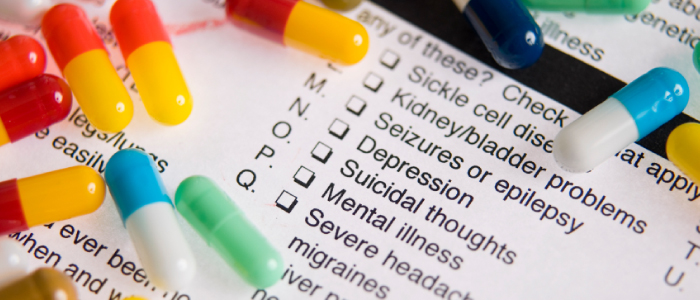 What Is It?: Clonidine (KLON-i-deen) belongs to the general class of medicines called antihypertensives. It is used to treat high blood pressure (hypertension). High blood pressure adds to the work load of the heart and arteries. If it continues for a long time, the heart and arteries may not function properly. This can damage the blood vessels of the brain, heart, and kidneys, resulting in a stroke, heart failure, or kidney failure. Hypertension may also increase the risk of heart attacks. These problems may be less likely to occur if blood pressure is controlled. Clonidine works by controlling nerve impulses along certain nerve pathways. As a result, it relaxes blood vessels so that blood passes through them more easily. This helps to lower blood pressure. Clonidine may also be used for other conditions as determined by your doctor.
What Is It?: Clonidine (KLON-i-deen) belongs to the general class of medicines called antihypertensives. It is used to treat high blood pressure (hypertension). High blood pressure adds to the work load of the heart and arteries. If it continues for a long time, the heart and arteries may not function properly. This can damage the blood vessels of the brain, heart, and kidneys, resulting in a stroke, heart failure, or kidney failure. Hypertension may also increase the risk of heart attacks. These problems may be less likely to occur if blood pressure is controlled. Clonidine works by controlling nerve impulses along certain nerve pathways. As a result, it relaxes blood vessels so that blood passes through them more easily. This helps to lower blood pressure. Clonidine may also be used for other conditions as determined by your doctor.
Possible Side Effects: Check with your doctor immediately if any of the following side effects occur: Difficulty in breathing; dizziness (extreme) or faintness; feeling cold; pinpoint pupils of eyes; slow heartbeat; unusual tiredness or weakness (extreme). Check with your doctor as soon as possible if any of the following side effects occur: More common–with transdermal system (skin patch) only, Itching or redness of skin. Less common: Mental depression; swelling of feet and lower legs. Rare: Paleness or cold feeling in fingertips and toes; vivid dreams or nightmares. Other side effects may occur that usually do not need medical attention. These side effects may go away during treatment as your body adjusts to the medicine. However, check with your doctor if any of the following side effects continue or are bothersome: More common; Constipation; dizziness; drowsiness; dryness of mouth; unusual tiredness or weakness. Less common; Darkening of skin—with transdermal system (skin patch) only; decreased sexual ability; dizziness, lightheadedness, or fainting, especially when getting up from a lying or sitting position; dry, itching, or burning eyes; loss of appetite; nausea or vomiting; nervousness. After you have been using this medicine for a while, it may cause unpleasant or even harmful effects if you stop taking it too suddenly. After you stop taking this medicine, check with your doctor immediately if any of the following occur: Anxiety or tenseness; chest pain; fast or pounding heartbeat; headache; increased salivation; nausea; nervousness; restlessness ; shaking or trembling of hands and fingers; stomach cramps; sweating; trouble in sleeping; vomiting
Storage: Keep in the original container. Keep out of the reach of children and pets. Capsules and tablets may be stored at room temperature. Some liquids should be stored in the refrigerator (see the prescription label.) Store all medicines away from excess heat and moisture. Do NOT store in the bathroom.
Note: If you miss a dose take it as soon as you remember it. However, if it is almost time for the next dose, skip the missed dose and continue with the regular schedule. Do not take a double dose to make up for the missed one.
